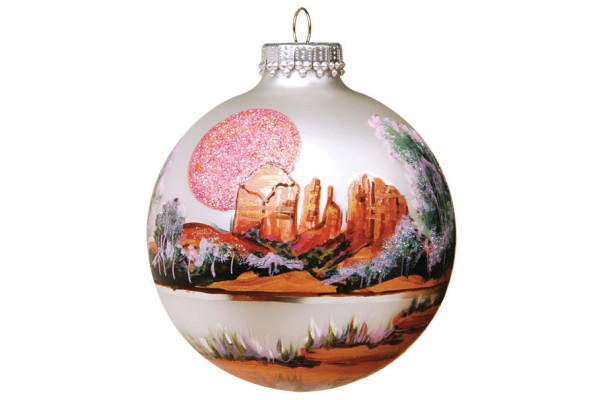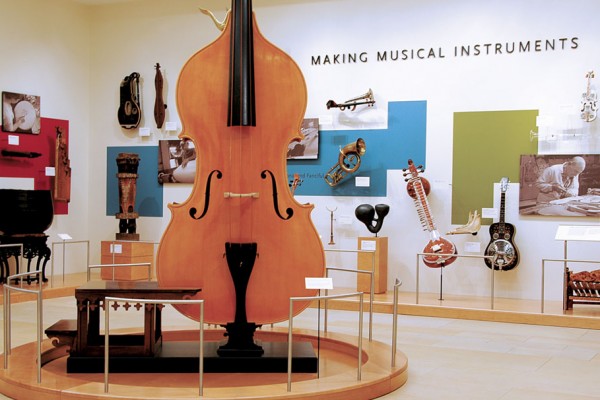Continued (page 4 of 13)
Who should see PoliWood?
I think this would have a wide audience [including] people who are interested in media, politics and celebrities. It’s been my experience, as the film has screened around the country, that people get very charged up about this movie. Whether they agree with it or not, it engenders a lot of interesting discussion.
You make a point of discussing your middle-class background in the film. Why do people assume celebrities are elitists when many come from humble beginnings? Do celebrities perpetuate the idea to an extent?
I don’t want to blatantly point my finger at the media, but somehow there’s been a disconnect between what people think of celebrities and what the vast majority of actors and artists actually do. When you talk about a movie star, people go to some sort of tabloid version of some little girl showing her crotch or being on drugs. The entire community gets tarred with this impression of being irresponsible, mindless children who are wasting their lives being decadent. That really isn’t the truth. A good example is all of the more right-wing celebrities who’ve reached political office: Ronald Reagan, Arnold Schwarzenegger, Clint Eastwood, Sonny Bono. Fred Thompson ran in the last presidential election, but there’s this idea that the left is peopled by celebrities. I think what you might learn from this movie is that it’s important not to paint everyone with the same brush. Bono’s a rock star, but tens of millions of people would be really sad if he wasn’t involved in his political causes. I don’t think celebrities perpetuate the idea [of elitism]. Certainly they are given unique and special access to a lot of events and people, but the interesting thing about them is that they have nothing to gain personally from supporting a candidate or idea, for the most part. They are doing it because they believe in something. For some reason, people find that very suspicious.
It’s always incredible the way the public expects celebrities to check their opinions at the door and keep their mouths shut. What is your reaction to that point of view?
I’ll say this: I think there are plenty of people out there – citizens, politicians, journalists and celebrities – who I think should shut up because they don’t know what they’re talking about. There are plenty of people who are supposedly experts on television every day talking about stuff, and they are telling a lot of lies. To paint Hollywood as all one thing is a mistake. We have this right to talk about what we believe in regardless of what [we] do for a living and regardless of what [we] believe. One of the things that bothers me the most is when anyone says something is un-American. The cornerstone of our democracy is argument, essentially.
PoliWood debuted at the Tribeca Film Festival and began running on Showtime last November. How important are film festivals to movies like PoliWood?
It’s important because film festivals tend to attract audiences who are thoughtful and want to have [a film] experience that’s not purely about adrenalin. Those people carry away with them interesting ideas that disseminate out. PoliWood in particular benefits from that because it is a thought-provoking movie that people can and will talk about.
Maynard James Keenan and Eric Glomski: Blood Into Wine
Multi-platinum recording artist Maynard James Keenan, his vineyard partner Eric Glomski, and their quest to bring the wine industry to northern Arizona are the subjects of the documentary Blood Into Wine. Maynard fronts three alt rock bands: Tool, Puscifer and A Perfect Circle, which have sold a combined total of 30 million records worldwide, but he also owns Merkin Vineyards and its associated winery, Caduceus Cellars, in Page Springs. He’s called northern Arizona home since 1995. Maynard is a notoriously private person and rarely grants interviews, but he checked in with Sedona Monthly from Vancouver, B.C., while on tour with Puscifer to talk about screening the film at the Sedona International Film Festival. As for Eric, he spoke to us while recovering from ankle surgery at his home near the winery. Eric planted Page Springs Vineyards in 2004 and harvested his first grapes in 2006. Page Springs Vineyards and Merkin Vineyards are a stone’s throw away from each other.
Sedona Monthly: In the trailer for the film Blood Into Wine, Maynard you talk about experiencing a dream about coming to Arizona. Where did you get the idea of growing grapes in Arizona?
Maynard James Keenan: Just by looking at the slopes. It seemed like the right place to try it.
Does your family have a background in agriculture?
MJK: None that I was aware of at the time.
How did the two of you meet?
MJK: He was one of the only people in the area that I could find [who] was actually [growing grapes].
What year did this come about?
MJK: We met around 2001 or 2002.
Eric Glomski: I was actually helping Jon Marcus start up Echo Canyon Vineyard and Winery. I’d never heard of Maynard or his music. He dropped in one day with some friends and apparently had interest in getting his own vineyard going. He was seeking out local knowledge. We got to chatting and realized we had similar drives and interests. One thing led to another and we decided to go at it together.
Eric, was it surreal when you found out who Maynard was and what he did for a living?
EG: Honestly, I can’t say it was surreal. I think that’s why we’ve continued to work well together. To me, Maynard was just a guy who wanted to grow grapes in northern Arizona, which made it easy to have a meaningful relationship that wasn’t predicated on the trappings of stardom or celebrity. Now that I consider him a close friend, I’m certainly impressed by his artistry, his creativity, his entrepreneurial drive – he’s an exemplary person.
When and where did the idea of Blood Into Wine come about?
MJK: There’s a film called The Heart is a Drum Machine. That’s how I met the directors and the producers. They filmed me at Page Springs Cellars. Part of that film is they put you on a black background and have you talk about music. While they were setting all of that up, they were looking around at the vineyard saying, ‘I think I see another film.’
EG: I met the directors [Ryan Page and Christopher Pomerenke] through The Heart is a Drum Machine. I poured wine at one of their showings, and we just got to talking and this idea evolved to do a wine movie. It’s kind of a feature film/documentary. In one plot, Maynard transitions from the world of rock stardom to a laidback winemaker. [In another plot], we’re both pioneering a new wine region within the big picture. It happened organically. The next thing you know, we had a film crew around the winery for the last year.



